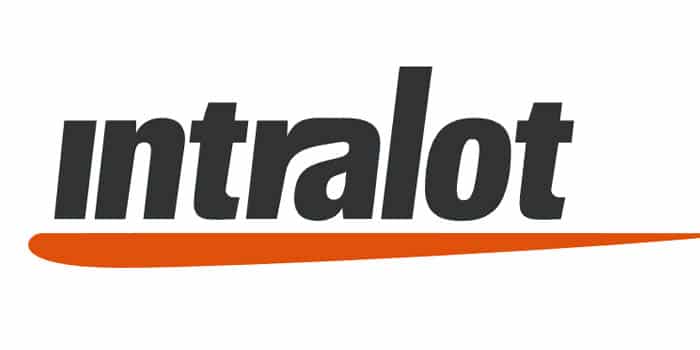- Casino
- By State
- Alabama
- Alaska
- Arizona
- Arkansas
- California
- Colorado
- Connecticut
- Delaware
- Georgia
- Florida
- Hawaii
- Idaho
- Illinois
- Indiana
- Iowa
- Kansas
- Kentucky
- Louisiana
- Maine
- Massachusetts
- Maryland
- Michigan
- Minnesota
- Mississippi
- Missouri
- Montana
- Nebraska
- Nevada
- New Hampshire
- New Jersey
- New Mexico
- New York
- North Carolina
- North Dakota
- Ohio
- Oklahoma
- Oregon
- Pennsylvania
- Rhode Island
- South Carolina
- South Dakota
- Tennessee
- Texas
- Utah
- Vermont
- Virginia
- Washington
- West Virginia
- Wisconsin
- Wyoming
- By State
- Slots
- Poker
- Sports
- Esports
Study: Young Gamers Steal Money from Parents to Buy Loot Boxes

A new report by the Gambling Health Alliance said that 15% of young gamers in the UK have taken money from their parents without permission to spend on loot boxes
Children Steal Money from Parents to Spend on Loot Boxes
According to new research by the Gambling Health Alliance, some 15% of young gamers have taken money from their parents without permission to buy loot boxes. An estimated 11% of gamers have used their parents’ credit cards to finalize the transaction, the GHA has reported.
The organization cautions that video games come with pitfalls and in a way resonates with what Scottish MP Ronnie Cowan said earlier this month, urging parents to boycott buying video games that contain loot boxes lest they start showing symptoms of gambling addiction.
The 15% reported by the GHA means that almost one in six young gamers has stolen money from their parents. Worse still, one in ten children, or 9%, have borrowed money they couldn’t repay to buy loot boxes, the research said.
Why Buy Loot Boxes?
Three families had to re-mortgage their homes to cover the purchase of loot boxes, the GHA revealed. Based on the research, one in four respondents or 22% spent over £100 on average during the regular playthrough.
Youngsters also reported that loot boxes interfered with their gaming experience for several reasons outlined by respondents in the survey. Children cited the “pay to win” model which made competitive play impossible.
Another reason children cited was the scarcity of valuable items which could be procured through loot boxes. According to the GHA, all of the above made loot boxes increasingly addictive.
What Do Researchers Say
GHA Chair Duncan Stephenson has commented on the addictive tendencies among young children, acknowledging that teenagers enjoyed video games and that was perfectly fine. However, Stephenson cautioned the general public about the effects loot boxes can have on young people’s mental and financial well-being.
Stephenson did say that the current study carried out by the GHA represents a very small segment of the general public. Nevertheless, the drive to play video games with loot boxes is at least loosely associated with signs of gambling addiction, such as begging, borrowing or stealing money to purchase loot boxes, Stephenson noted and explained:
“Aside from the financial cost our latest survey with gamers suggests that the fixation with loot boxes can lead to classic symptoms of addiction including mood swings, problems sleeping, and impacting on their social life.”
-GHA Chair Duncan Stephenson
He cautioned parents to be careful about the risks that loot boxes entail, especially when considering purchases of games that contain loot boxes. Stephenson also noted that these game mechanics will sooner or later be classified as gambling and be removed from games played by individuals who are under 18 years of age.
There have been multiple calls for the reclassification of loot boxes already. In July, the UK House of Lords has urged to recognize loot boxes as an addictive game feature. The Spanish gambling regulator, DGOJ, has expressed a similar sentiment in November. Not least, EA has reportedly considered suspending loot boxes in certain jurisdictions to appease regulators across Europe.
Support for GHA’s Findings
Parent Zone Executive Editor Geraldine Bedell has said that her organization backs the calls for further scrutiny into loot boxes raised by the GHA. Bedell cited Parent Zone’s own research, suggesting that children are indeed influenced and exposed to gambling-like mechanics in online games featuring these digital containers.
Another backer is Bernando Chief Executive Javed Khan who argued that children should be allowed to enjoy games without “being led down a destructive path towards addiction and gambling.” He further had this to add:
“The gaming industry must commit to incorporating stronger child safety features into their products so children are protected from the dangers of online gaming. The Government must then commit to holding the industry to account.”
-Bernando Chief Executive Javed Khan
More interestingly, the GHA report revealed that 91% of young people responding to the survey have made a connection between gambling and loot boxes, and agreed they should be classified as a form of gambling.
Another 41% of respondents agreed that spending money on loot boxes in their teens would lead to higher gambling incidence when they get older.
Related Topics:
Although Fiona doesn't have a long-spanning background within the gambling industry, she is an incredibly skilled journalist who has built a strong interest in the constantly growing iGaming network. The team at Gambling News is glad to have her on our roster to help deliver the best stories as soon as they hit. Aside from writing, she loves to dabble in online casino games such as slots and roulette, both for her own enjoyment and also as research to better improve her understanding of the industry.
Previous Article

Esports
December 24, 2020
Wind Creek Hospitality and Betfred Add Online Sports Betting

Must Read














